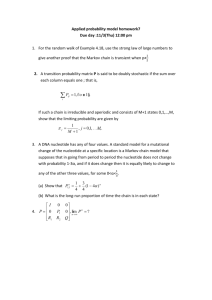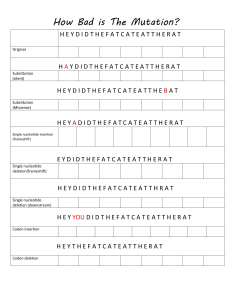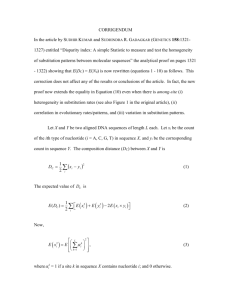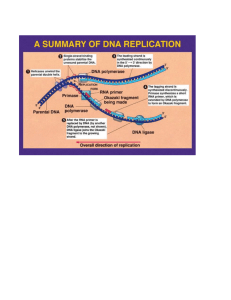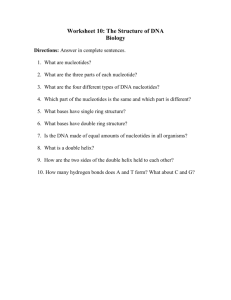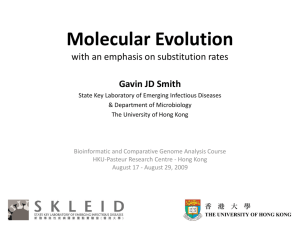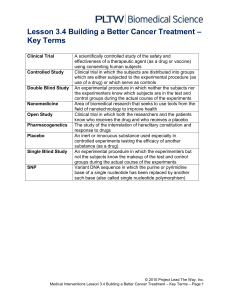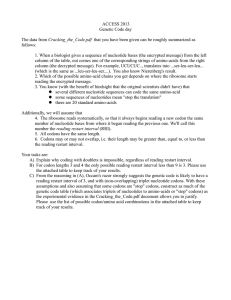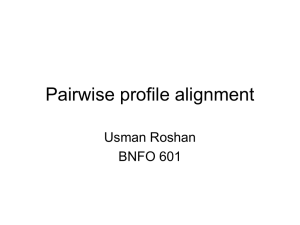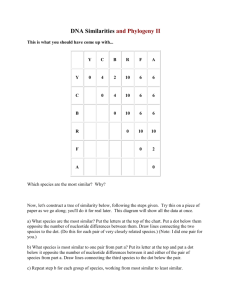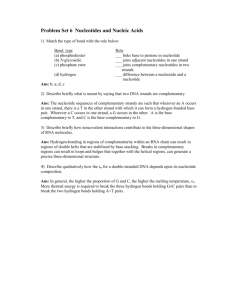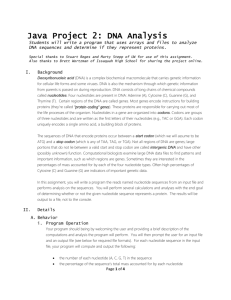ex4
advertisement
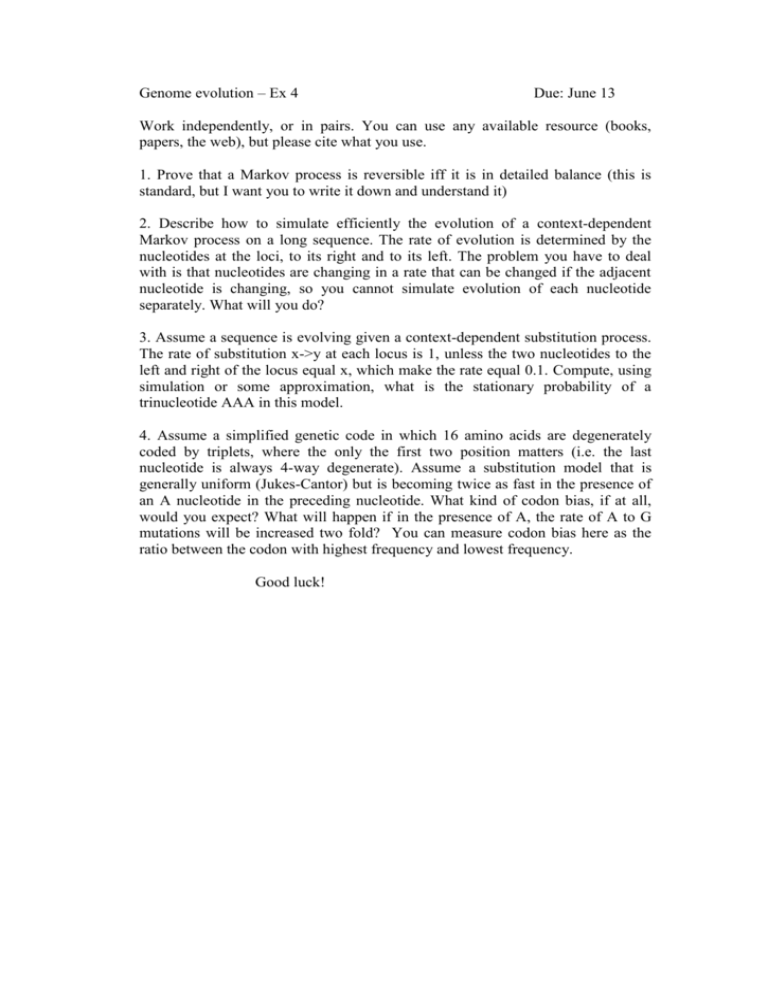
Genome evolution – Ex 4 Due: June 13 Work independently, or in pairs. You can use any available resource (books, papers, the web), but please cite what you use. 1. Prove that a Markov process is reversible iff it is in detailed balance (this is standard, but I want you to write it down and understand it) 2. Describe how to simulate efficiently the evolution of a context-dependent Markov process on a long sequence. The rate of evolution is determined by the nucleotides at the loci, to its right and to its left. The problem you have to deal with is that nucleotides are changing in a rate that can be changed if the adjacent nucleotide is changing, so you cannot simulate evolution of each nucleotide separately. What will you do? 3. Assume a sequence is evolving given a context-dependent substitution process. The rate of substitution x->y at each locus is 1, unless the two nucleotides to the left and right of the locus equal x, which make the rate equal 0.1. Compute, using simulation or some approximation, what is the stationary probability of a trinucleotide AAA in this model. 4. Assume a simplified genetic code in which 16 amino acids are degenerately coded by triplets, where the only the first two position matters (i.e. the last nucleotide is always 4-way degenerate). Assume a substitution model that is generally uniform (Jukes-Cantor) but is becoming twice as fast in the presence of an A nucleotide in the preceding nucleotide. What kind of codon bias, if at all, would you expect? What will happen if in the presence of A, the rate of A to G mutations will be increased two fold? You can measure codon bias here as the ratio between the codon with highest frequency and lowest frequency. Good luck!
